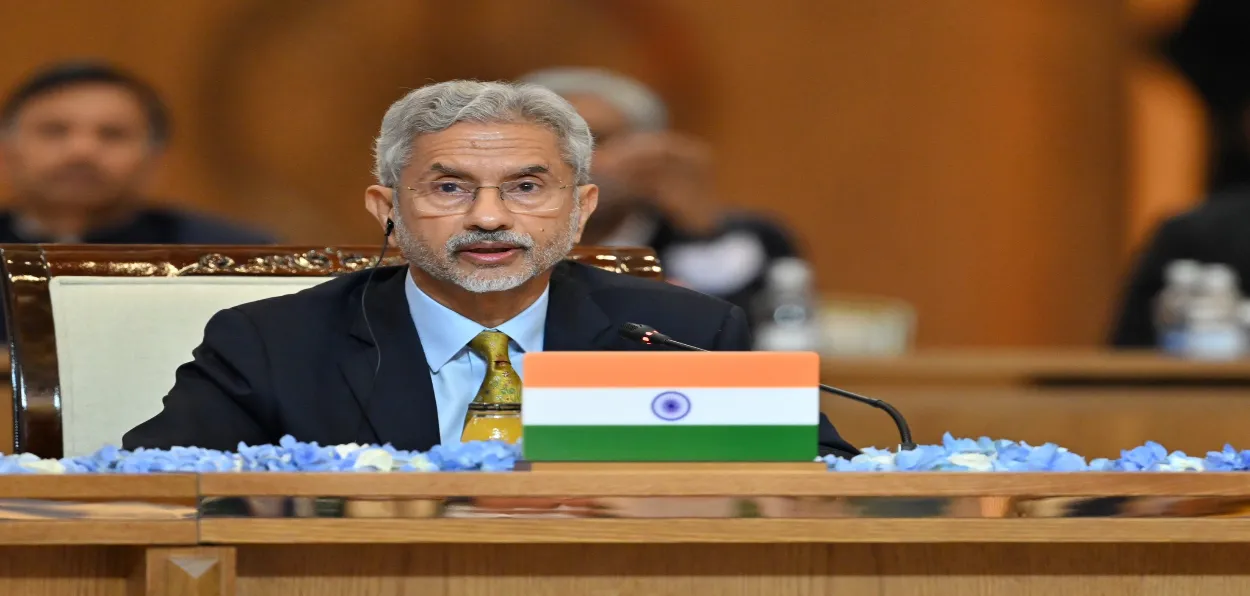
 Aditi Bhaduri
Aditi Bhaduri
Is India rethinking its engagement with the Shanghai Cooperation Organisation? On his reelection for a historic third consecutive term, prime Minister Narendra Modi skipped the SCO summit in Astana, the Kazakh capital. The official reason was that the first parliament of the Modi 3.0 was in session. However, it is widely believed that the skip was to avoid meeting Chinese President Xi Jinping. Last year too, when India assumed the SCO chair and expended sufficient effort in holding numerous meetings, the final summit was turned into a virtual one, causing sufficient consternation amongst some member countries. The reason quoted last year was India's preoccupation with the G20 summit.
The SCO was formed in Shanghai in 2001, on the initiative of China, along with the Central Asian states of Kazakhstan, Kyrgyzstan, Tajikistan, Uzbekistan, and the Russian Federation. It was meant to be a regional security bloc, for countries in the region coordinating and pooling resources to jointly battle terrorism, and transnational crimes like narcotics smuggling, human trafficking, and religious radicalism. The immediate driver was the unstable situation in Afghanistan which affected all these countries. Another underlying reason was to check Chinese expansion in Central Asia where five sovereign states appeared in the post-Soviet space, in Russia’s traditional sphere of influence.
India joined the SCO in 2017. Its entry was facilitated by Russia, as a balance for China's heft in the organization. Simultaneously, China facilitated Pakistan’s entry in the same year. The SCO has garnered attention as a Eurasian security bloc, sometimes called the Eurasian NATO. The SCO, however, has no military alliance, and the only institution is the Regional Anti-Terrorism Structure (RA5S) headquartered in Tashkent.
Iran joined the SCO in 2023 and Belarus was admitted at the Astana summit last week. Afghanistan and Mongolia have observer status; along with 14 dialogue partners like Turkey, Saudi Arabia, UAE, Qatar, Armenia, Azerbaijan and others.
Dr S Jaishanka at the SCO summit in Astana
The SCO Secretary-General recently said the organization has received membership applications from countries beyond the region, including from the Middle East, North Africa, South Asia, and Southeast Asia, underscoring the global attention the SCO is acquiring. The current members of the SCO account for 30 percent of the global GDP.
This is why it is desirable for India to remain engaged and well-engaged rather than half-heartedly.
For one, when India joined it, it knew that the SCO was a China-led organization. So this is a factor that should not then come in India's way.
Second, India's entry into the SCO was facilitated by Russia, to balance China's clout within the organization. If India is wary of China’s influence within the organization, then all the more reason for it to stay engaged. Third, decisions are made by consensus within the organization, so India will have the right and freedom to engage or not engage in activities and decisions of the organization just as it had refused to sign on to the Belt and Road Initiative (BRI) which China has been pushing for member-states to sign on to and all have, except India.
Fourth, one of the reasons that India joined the SCO was because it presented a platform for annual meetings with the heads of states of the Central Asian countries (CARS) with whom India has been trying to forge close ties. The lukewarm enthusiasm that India has displayed over the last two years is detrimental to the pursuit of close relations with the CARS. Meanwhile, China has been continuing its fast economic and strategic expansion into the region.
Dr Jaishankar meeting CPC Politburo member and FM Wang Yi at SCO meet in Astana
Fifth, India cannot change its geography. Two of its immediate neighbours are member-states of the SCO. More countries from the Middle East and the South Caucuses - India's extended neighborhood - want to join the SCO and will certainly do so shortly. India risks getting isolated.
Sixth, the SCO represents 30 percent of global GDP and with the inclusion of more states, this will grow. There are tremendous trade opportunities within the organization for India.
Seventh, one of the underlying reasons for the creation of the SCO was to jointly hedge against and counter instability emanating from Afghanistan. The same threat and fear persist. The SCO offers a platform for joint coordination and action of all regional states to counter such threats and to find pathways for peace and stability in Afghanistan. India cannot do it alone and will benefit by working together with the SCO on stabilizing Afghanistan.
Finally, the SCO has done commendable work in countering and tackling trans-regional crimes like drug smuggling, human trafficking, etc. At a time when the ISIS-KP threat has emerged in Central Asia, the SCO offers a great opportunity for countries of the region to counter such terror threats.
ALSO READ: PM Modi's visit firmed up India's role in Russia's mineral-rich Far East
India should, thus, carefully think over its engagement with the SCO. An impasse with China on its borders is no reason for it to let go of a good opportunity, especially when the border issue notwithstanding, China has emerged as our biggest trading partner.
The author specializes in analyzing affairs related to Russia, Central Asia and Middle-east
